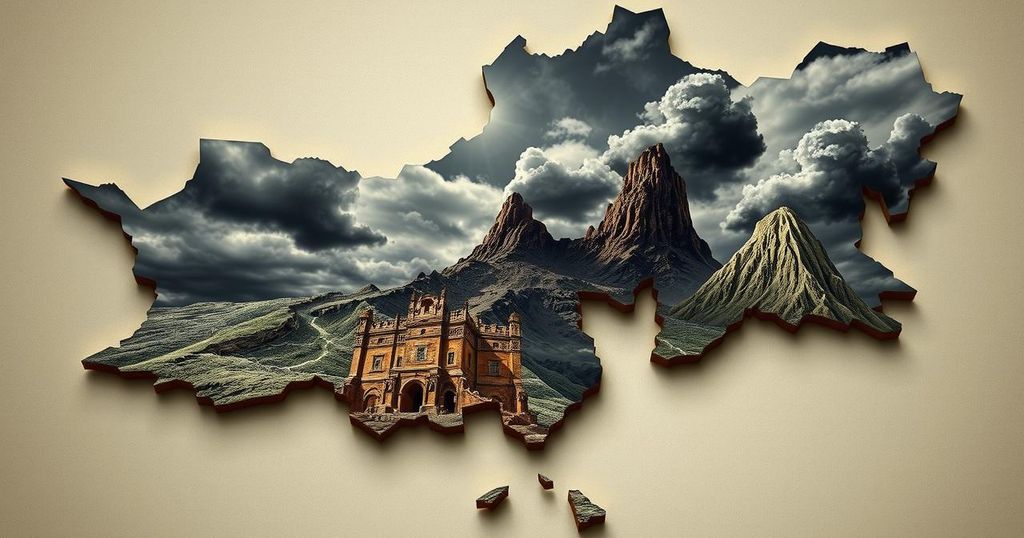The Democratic Republic of the Congo faces a humanitarian crisis as the M23 rebel group, allegedly supported by Rwanda, seizes territory in Goma, resulting in UN peacekeeper casualties and mass displacement. Foreign Minister Thérèse Kayikwamba Wagner discussed the dire situation, citing severe infrastructure breakdowns and urging the international community to take decisive action to prevent further escalation and restore stability.
The Democratic Republic of the Congo (DRC) is currently grappling with a severe crisis as a rebel group suspected to be backed by Rwanda, known as the M23, has launched an offensive and taken control of the city of Goma, located near the Rwandan border. This escalation in violence has resulted in the tragic deaths of UN peacekeepers, strained healthcare systems, and displaced a significant number of civilians, leading to fears of an expanded regional conflict. The DRC’s foreign minister, Thérèse Kayikwamba Wagner, spoke to Amna Nawaz about the grave humanitarian situation unfolding in the region.
Minister Wagner outlined that the occupation of DRC territory by Rwandan forces has severely disrupted basic infrastructure, including healthcare, electricity, and water supplies. Citizens struggle to access medical care, facing the danger of shelling when they do. Recently, 17 UN peacekeepers were killed in exchanges with the Rwandan forces and their allies. This scenario poses both a humanitarian crisis and jeopardizes regional peace.
In response to questions about Rwanda’s involvement, Minister Wagner cited credible reports from the United Nations, stating that approximately 4,000 Rwandan troops were present in the DRC, as per a December report by UN experts. She emphasized that international acknowledgment of Rwanda’s military presence contrasts with Rwanda’s denial. The broader strategic significance of the DRC’s eastern provinces, rich in minerals such as coltan, underlies the conflict and has been exacerbated by human rights violations.
The Congolese minister expressed that the international community has been slow to respond to the recurring crisis instigated by M23. The DRC has already alerted the UN Security Council regarding these issues for over three years. Minister Wagner commended the recent recognition from the United States, urging for immediate actions, including the withdrawal of Rwandan troops, and imposing sanctions on Rwandan mineral exports.
If the international community fails to initiate viable actions, the minister believes that Rwanda’s objectives will persist, potentially leading to attempts to overthrow the democratically elected government in Kinshasa. Such an outcome would not only destabilize DRC but could potentially incite chaos across the entire region, undermining past international investments in peace and stability.
Minister Wagner concluded the discussion, underscoring that the situation requires urgent and decisive international intervention to avert further deterioration and endanger lives in the DRC and neighboring regions.
The current situation in the Democratic Republic of the Congo is characterized by a violent conflict involving the M23 rebel group, which is allegedly supported by Rwanda. The intended occupation of Congolese territory by Rwandan forces has led to dire humanitarian consequences. The escalation of hostilities has prompted significant international concern regarding peace and stability in the region, as well as the welfare of the population.
The conflict in the Democratic Republic of the Congo, fueled by the M23 rebel group and purported Rwandan involvement, necessitates immediate international attention. Minister Wagner emphasized the necessity of actions, such as troop withdrawal and sanctions, to prevent further destabilization of the region. The ongoing violence poses serious humanitarian challenges and risks plunging the DRC and its neighbors into chaos if not adequately addressed.
Original Source: www.pbs.org




